Article erased
Anti-Japan Tribalism on the Comfort Women Issue
Inconsistent court rulings are a reflection of Korean thinking.By Lee Wooyoun November 14, 2021
____
In December 2015, the governments of South Korea and Japan reached a “final and irreversible” resolution
Anti-Japan Tribalism on the Comfort Women Issue
Inconsistent court rulings are a reflection of Korean thinking.By Lee Wooyoun November 14, 2021
____
In December 2015, the governments of South Korea and Japan reached a “final and irreversible” resolution
https://twitter.com/Diplomat_APAC/status/1460411391425265666
to the comfort women issue. Then-Prime Minister Abe Shinzo expressed anew his “most sincere apologies and remorse” and agreed to donate 1 billion yen (10.8 billion won at the time) from the government budget to support the victims. The Reconciliation and Healing Foundation was
established, and the donation was paid to 34 of the 45 former comfort women who were alive at the time.
In 2017, the Moon Jae-in administration effectively abandoned this agreement made by the Park Geun-hye administration, citing the fact that the wishes of the former comfort
In 2017, the Moon Jae-in administration effectively abandoned this agreement made by the Park Geun-hye administration, citing the fact that the wishes of the former comfort
women victims were not properly reflected in the negotiations. Despite the fact that the Foundation still held assets of 6 billion won, its charter was revoked and Moon declared that a “true resolution” had not been reached. The Japanese government urged the Korean government to
adhere to the agreement and remedy what it considered Korea’s breach of international law, but this was met with inaction on the part of the Korean government.In January 2021, another bombshell. In a lawsuit filed against Japan for damages by twelve former comfort
women, the 34th Civil Division of the Seoul Central District Court ruled that Japan must compensate the plaintiffs 100 million won each.Many of the plaintiffs at this trial claimed that they had been abducted, which some of the former comfort women had also claimed. It was
a textbook case of “forced recruitment theory” and was accepted by the Court at face value. Now, however, the forced recruitment theory is being significantly undermined. The testimonies of the comfort women are sometimes inconsistent.
Prominent former comfort woman Lee Yong-soo initially said that she had been recruited on false pretenses, but later said that she had been forcibly recruited by the Japanese military. Moreover, Lee’s testimony is only her life story. It is not supported by objective evidence.
No documents have been found to prove forced recruitment, and no family member, acquaintance, or other third party has come forward to testify to that fact.
Another key element relied upon by those affiliated with the anti-Japanese movement through the comfort women issue is
Another key element relied upon by those affiliated with the anti-Japanese movement through the comfort women issue is
the “sex slaves theory.” According to this theory, comfort women did not receive wages, could not quit even if they wished to, and had no freedom of movement in their everyday lives. According to the “basic facts” of the ruling, the Court has consistently adhered to
the sex slaves theory. These are not, however, historical facts. Rather, they reflect the Anti-Japan Tribalism mentality of South Korea, a fictional assumption. “Comfort women” were engaged in a “high-risk, high-return” occupation.
Some occasionally earned enormous sums, and a great many returned to Korea or re-entered the workforce after their contracted term of employment ended. Restrictions on daily freedoms applied equally to military personnel, civilian employees, nurses, and anyone else in
the battlefield environment. In conclusion, comfort women were not sex slaves, but sex workers who were fundamentally no different from today’s sex industry workers.
The courts of one nation cannot exercise jurisdiction over the acts of another nation exercising its sovereignty,
The courts of one nation cannot exercise jurisdiction over the acts of another nation exercising its sovereignty,
even if those act are unlawful. This is the principle of international customary law known as state immunity, and it is designed to prevent legal battles turning into armed conflict and to facilitate international peace. The Court declared that the actions taken by Japan for the
mobilization, maintenance and management of the comfort women were “anti-humanitarian crimes” and handed down the ruling of an exception to state immunity.
In April of this year, the 15th Civil Division of the Seoul Central District Court handed down a ruling that was completely
In April of this year, the 15th Civil Division of the Seoul Central District Court handed down a ruling that was completely
at variance with the January ruling, causing surprise both within and outside South Korea. A lawsuit filed by 20 former comfort women was identical in nature to that filed in the January trial, yet the Court dismissed it without deliberating on the facts, citing state immunity.
The presentment relating to this accounted for almost two-thirds of the 79 pages of the judgment. According to this ruling, international customary law that considers a “humanitarian crime” as an exception to state immunity has not yet been established. Further,
if we look at the rulings of courts at various levels in the United States, seven European countries, and the International Court of Justice in relation to illegal acts by the German army during World War II, with the exception of some courts in Italy, all granted state immunity
in respect of the acts perpetrated by the German army.
The April ruling contains an important point of detail that should be noted. Namely, the law is not the sole or last resort remedy for “comfort women victims.” An alternative may be a “diplomatic agreement,”
The April ruling contains an important point of detail that should be noted. Namely, the law is not the sole or last resort remedy for “comfort women victims.” An alternative may be a “diplomatic agreement,”
as the agreement between South Korea and Japan in 2015 showed. The ruling also goes into considerable detail on this point. Ultimately, the April ruling seems to be a “practical” ruling that considers the intention to find a realistic solution to the problem and ways of doing so.
The January ruling rejected the common understanding of diplomacy as involving another party. The Japanese government is calling for the agreement to be observed and is unlikely to change its position in the future, given that not only Japanese political parties but more than
two-thirds of the Japanese public believe that South Korea is responsible for the catastrophic situation. The January ruling was a “theoretical” ruling based on anti-Japan tribalism.
The April ruling is by no means without its problems. The Court accepted the forced recruitment
The April ruling is by no means without its problems. The Court accepted the forced recruitment
theory and the sex slaves theory through the “basic facts.” Therefore, neither of the two rulings resolves the issue in any “fundamental” sense. However, we have to consider what is the current mainstream theory in Korean society. We must also remember the experience that
changed the historical perception in Japan and the struggle that came with it. As we saw in the whirlwind of “anti-Japan tribalism,” the seeds of change in South Korea are now sprouting. And South Korea is “Dynamic Korea,” a country that is constantly changing.
GUEST AUTHOR
Lee Wooyoun
Lee Wooyoun is a research fellow at the Naksungdae Institute of Economic Research in South Korea. His publications include Anti-Japan Tribalism (co-authored).
Lee Wooyoun
Lee Wooyoun is a research fellow at the Naksungdae Institute of Economic Research in South Korea. His publications include Anti-Japan Tribalism (co-authored).
TAGS
#Koreas
#Japan #SouthKorea #ComfortWomenAgreement
#SouthKoreaComfortWomenCourtRulingthe
________
END of the deleted article(🙌)
#Koreas
#Japan #SouthKorea #ComfortWomenAgreement
#SouthKoreaComfortWomenCourtRulingthe
________
END of the deleted article(🙌)
This agreement contains several items that are often forgotten.
1) Both governments do not use "sex slaves" or "forced entrainment" because they do not correspond to the actual situation.
2) Both governments do not publicly mention the comfort women issue
1) Both governments do not use "sex slaves" or "forced entrainment" because they do not correspond to the actual situation.
2) Both governments do not publicly mention the comfort women issue
(continued)
3) The Korean government will make an effort to eliminate the statue of peace in front of the site of the former Japanese embassy.
______
However The Korean government does not comply with these three items
Former Foreign Minister Ms. Kang Kyung-wha has repeatedly
3) The Korean government will make an effort to eliminate the statue of peace in front of the site of the former Japanese embassy.
______
However The Korean government does not comply with these three items
Former Foreign Minister Ms. Kang Kyung-wha has repeatedly

mentioned the comfort women issue at international conferences. The Japanese government has not even announced any views since then because it is keeping the agreement.
When the Korean media went mad in Rasmeyer's dissertation, he did not give his opinion unlike the Korean side.
When the Korean media went mad in Rasmeyer's dissertation, he did not give his opinion unlike the Korean side.
The legal basis for item 3 is the Vienna Convention. The South Korean government is also aware that the statue is in violation.
You can check it on the website
docs.google.com/document/d/1Qu…



You can check it on the website
docs.google.com/document/d/1Qu…




However, Korean may argue that:
There is no legal basis for item 3. This is because the Japanese Embassy building and its functions have not been there since 2014
There may be a reason. Rebuilting the embassy, Seoul did't allow it to be built because it would spoil the landscape
There is no legal basis for item 3. This is because the Japanese Embassy building and its functions have not been there since 2014
There may be a reason. Rebuilting the embassy, Seoul did't allow it to be built because it would spoil the landscape
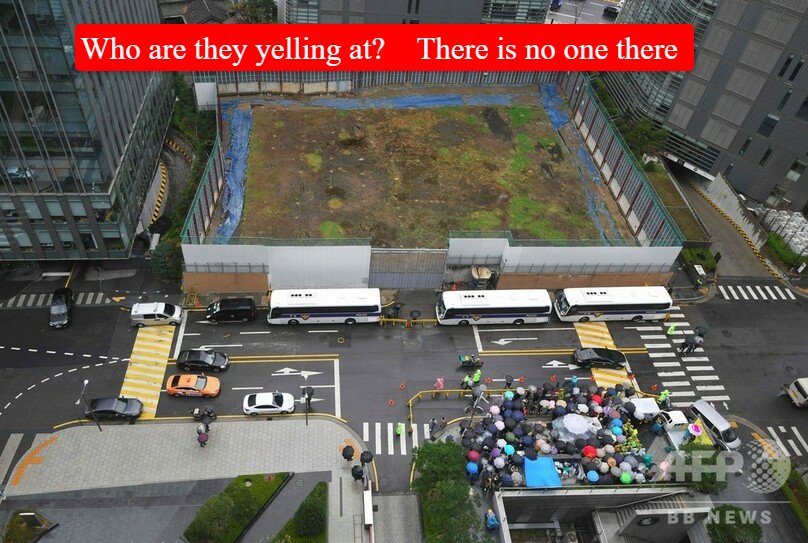
The Government of Japan’s position
“Forceful taking away”
“Forceful taking away” of comfort women by the Japanese military and government authorities could not be confirmed in any of the documents that the Government of Japan was able to identify.
(=Prove by the claimant)
“Forceful taking away”
“Forceful taking away” of comfort women by the Japanese military and government authorities could not be confirmed in any of the documents that the Government of Japan was able to identify.
(=Prove by the claimant)

Governments of Japan & ROK's positions
“Sex slaves”
The expression “sex slaves” contradicts the facts so that it should not be used. This point was confirmed with the ROK at the occasion of the Japan-ROK Agreement in December 2015 and the expression “sex slaves” is not used in it
“Sex slaves”
The expression “sex slaves” contradicts the facts so that it should not be used. This point was confirmed with the ROK at the occasion of the Japan-ROK Agreement in December 2015 and the expression “sex slaves” is not used in it

Let's take a look at the ROK government's position on “Forceful taking away”
"There is no evidence that the comfort women were forcibly taken." The Korean government said, "Who is the government for?" "There is no way I can beat Japan."
RC 2015/4/16
web.archive.org/web/2019111214…
"There is no evidence that the comfort women were forcibly taken." The Korean government said, "Who is the government for?" "There is no way I can beat Japan."
RC 2015/4/16
web.archive.org/web/2019111214…
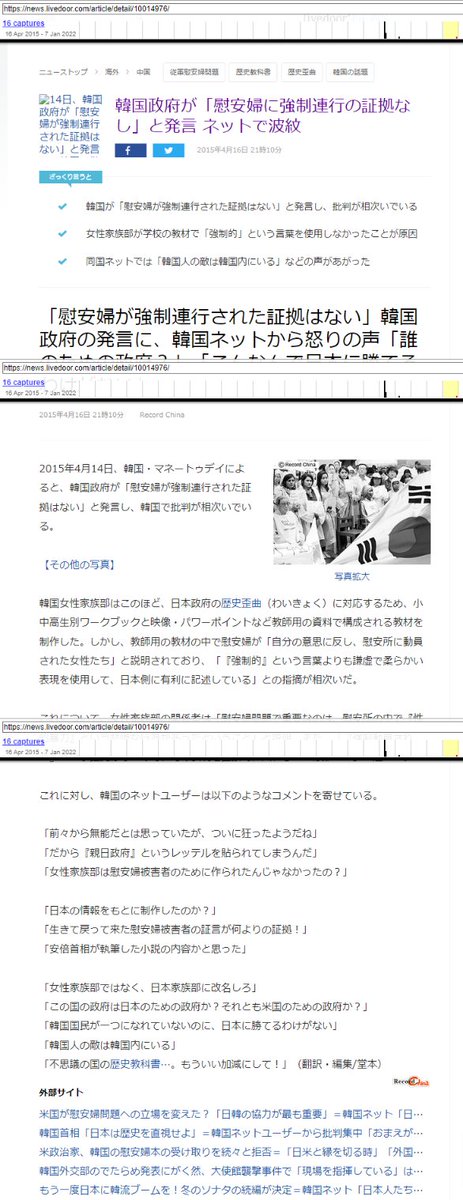
As mentioned above, regarding the #Japan-#Korea #comfortwomen #agreement, the Japanese side complies with all, and the Korean side #violates the agreement.
The biggest one is that the fund for the former comfort women was unilaterally dissolved as shown in the erased article.
The biggest one is that the fund for the former comfort women was unilaterally dissolved as shown in the erased article.
take a look at the background of the agreement.
Former Abe did it by overcoming domestic opposition.
The Japanese side was the now Prime Minister Kishida, and the mediation of the US was the now President Biden and Secretary of State Brinken. angry about ROK's breach of promise

Former Abe did it by overcoming domestic opposition.
The Japanese side was the now Prime Minister Kishida, and the mediation of the US was the now President Biden and Secretary of State Brinken. angry about ROK's breach of promise

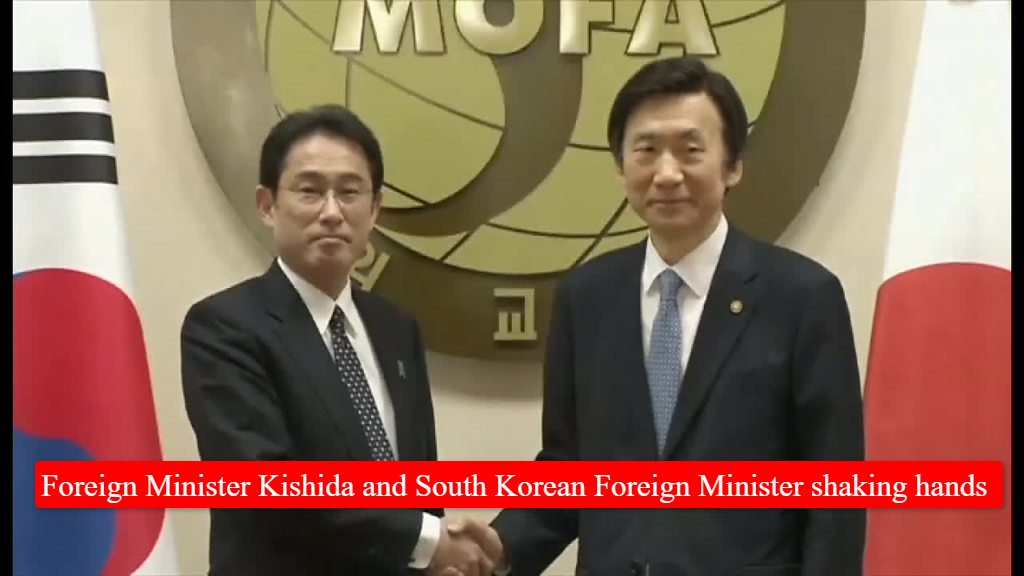
Next to the second section:
a lawsuit filed against Japan for damages by twelve former comfort women.
It should be noted that the trial was not a claim for damages but a claim for consolation.
The weight of this ruling is ridiculously large.

a lawsuit filed against Japan for damages by twelve former comfort women.
It should be noted that the trial was not a claim for damages but a claim for consolation.
The weight of this ruling is ridiculously large.


In short, the Japan-Korea Merger Treaty is illegal, so Korean can claim a consolation fee for damages caused by it.
For example, I worked as a coal mine worker in response to a recruitment. I was deceived and he volunteered for the soldiers and suffered a hard time in the war.



For example, I worked as a coal mine worker in response to a recruitment. I was deceived and he volunteered for the soldiers and suffered a hard time in the war.
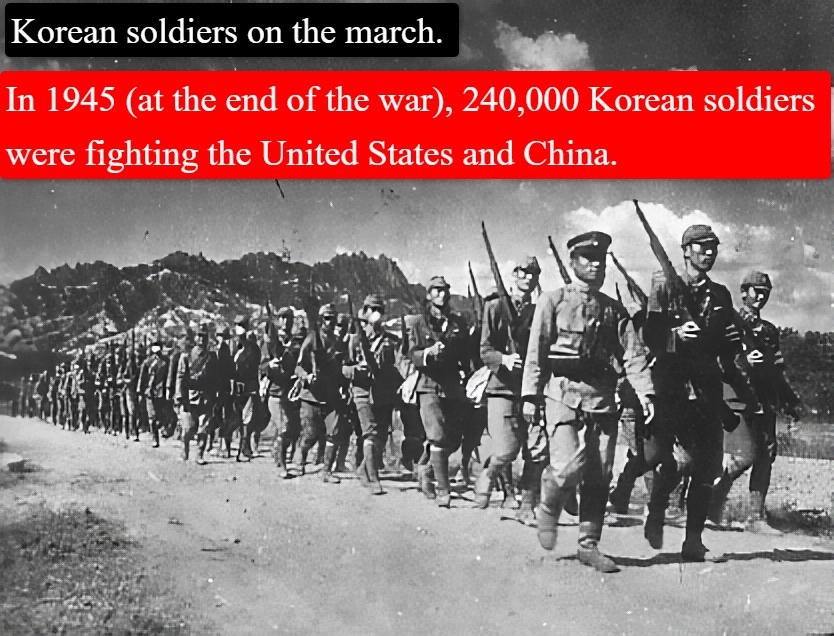
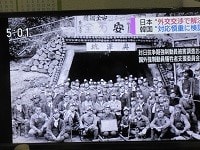

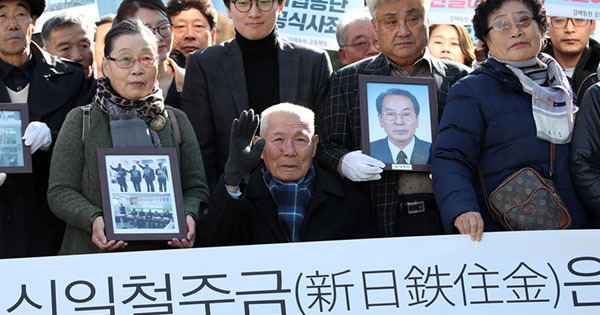
Deviate to the side street
As to the Merger Treaty, At the request of 李完用Lee Wan-yong, then been annexed without blood
Korea was financially bankrupt, and many (93%) of the people were in slavery. Since Japan released slaves, the only vested interests (7% 両班Ryouhan) resisted



As to the Merger Treaty, At the request of 李完用Lee Wan-yong, then been annexed without blood
Korea was financially bankrupt, and many (93%) of the people were in slavery. Since Japan released slaves, the only vested interests (7% 両班Ryouhan) resisted

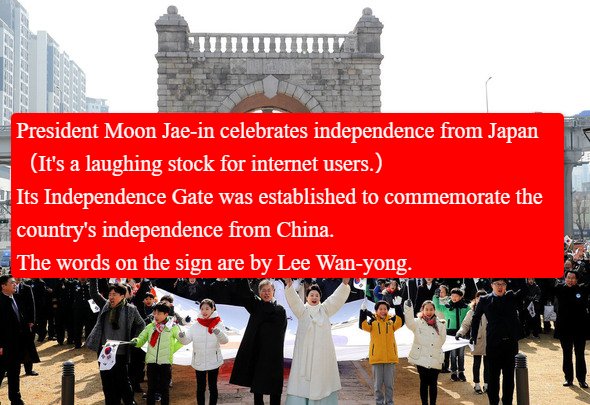


Supposed independence activists.
total 300 were active in Shanghai, publishing independent newspapers. It reported 6661 Koreans were killed during Great Kanto Earthquake and 7600 victims of the 3.1 Movement.
After the war, the incidents were embellished by Koreans living in Japan


total 300 were active in Shanghai, publishing independent newspapers. It reported 6661 Koreans were killed during Great Kanto Earthquake and 7600 victims of the 3.1 Movement.
After the war, the incidents were embellished by Koreans living in Japan



As to comfortwomen, propagandized through unfounded and absurd movies, novels, and events, and girls were forcibly taken by Japan military and made into sex slaves. That was taught to children through textbooks
The photos in textbooks have all been proven to be fake or irrelevant



The photos in textbooks have all been proven to be fake or irrelevant




Even comfort women statue Koreans love is a fake statue.
no women with such hairstyles in pre-war Korea, strongly influenced by Confucianism.
Comfort women from the Joseon Dynasty.
kaikai.ch/board/115902/
The model is said to be a girl who was run over and killed by US soldiers.



no women with such hairstyles in pre-war Korea, strongly influenced by Confucianism.
Comfort women from the Joseon Dynasty.
kaikai.ch/board/115902/
The model is said to be a girl who was run over and killed by US soldiers.




barefoot statue give fake image comfort women were little girls were abducted
But, in fact, Most of the comfort women for military were Japanese, adult women with average 25. no comfort women under the age of 17 in Korea, the same public prostitution system was in place as Japan

But, in fact, Most of the comfort women for military were Japanese, adult women with average 25. no comfort women under the age of 17 in Korea, the same public prostitution system was in place as Japan


Here is a summary of the laws and regulations related to prostitutes at the time.
Japan is one of the 28 countries that have ratified the international treaty. The main purpose is to protect the rights of prostitutes.
docs.google.com/document/d/1__…


Japan is one of the 28 countries that have ratified the international treaty. The main purpose is to protect the rights of prostitutes.
docs.google.com/document/d/1__…



Let's get back to the main topic, the Korean lawsuit.
BTW, do you still remember that former comfort women, including Ms. Lee Yong Soo, filed the same class action lawsuit in the United States?
Judge William Elsap of the U.S. District Court in San Francisco said

BTW, do you still remember that former comfort women, including Ms. Lee Yong Soo, filed the same class action lawsuit in the United States?
Judge William Elsap of the U.S. District Court in San Francisco said


"The court gave the plaintiffs several opportunities to submit documents to support their claims, but they failed to do so. The court was unable to discuss the plaintiffs' claims any further."
Koreans: "the trial in US dismissed for lack of evidence"
blog.livedoor.jp/kaikaihanno/ar…

Koreans: "the trial in US dismissed for lack of evidence"
blog.livedoor.jp/kaikaihanno/ar…


Meanwhile, in the erased article, the court orders the defendant to pay a fee (not compensation).
the court blindly adopted oral testimonies of the former comfort women as evidence, and since the defendant, the Japanese government, did not appear in court,
the court blindly adopted oral testimonies of the former comfort women as evidence, and since the defendant, the Japanese government, did not appear in court,
the oral testimony did not go through interrogation (hearsay evidence is not allowed to be used as evidence in principle (Article 320 of the Code of Criminal Procedure)).
In addition, this decision violates the principle of customary international law called State Immunity
In addition, this decision violates the principle of customary international law called State Immunity
(one country can't sue another in its own court). It's an alien ruling for nations governed by the rule of law.
Court declared actions taken by Japan to mobilize, maintain and control the comfort women were "anti-humanitarian crimes" and ruled on an exception to State Immunity
Court declared actions taken by Japan to mobilize, maintain and control the comfort women were "anti-humanitarian crimes" and ruled on an exception to State Immunity
(supplement)
behind the photo.
Note: JAP is a derogatory term for Japanese.
Caption: FOUR JAP GIRLS TAKEN PRISONER BY TROOPS OF CHINESE 8TH ARMY AT VILLAGE ON SUNG SHAN HILL ON THE BURMA ROAD WHEN JAP SOLDIERS WERE KILLED OR DRIVEN FROM VILLAGE. CHINESE SOLDIERS GUARDING GIRLS.



behind the photo.
Note: JAP is a derogatory term for Japanese.
Caption: FOUR JAP GIRLS TAKEN PRISONER BY TROOPS OF CHINESE 8TH ARMY AT VILLAGE ON SUNG SHAN HILL ON THE BURMA ROAD WHEN JAP SOLDIERS WERE KILLED OR DRIVEN FROM VILLAGE. CHINESE SOLDIERS GUARDING GIRLS.



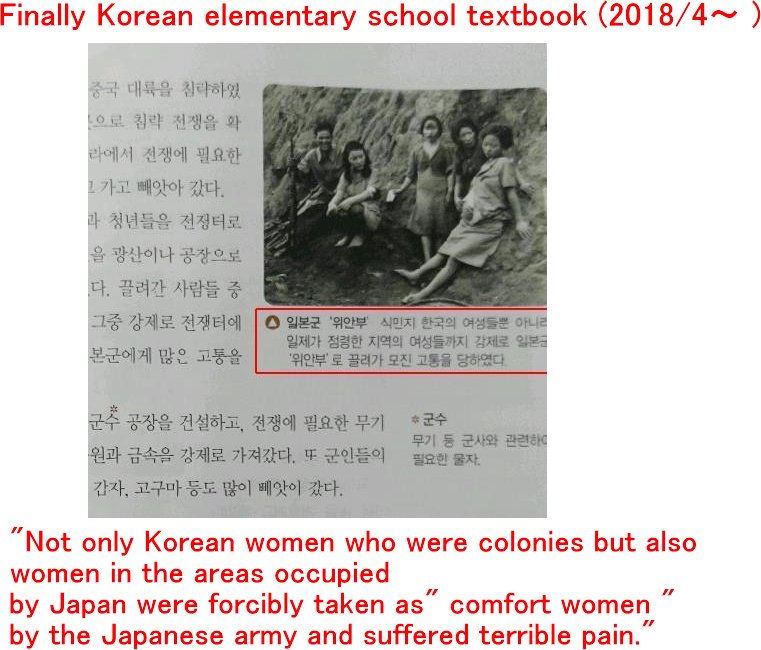
@threadreaderapp unroll
• • •
Missing some Tweet in this thread? You can try to
force a refresh


















